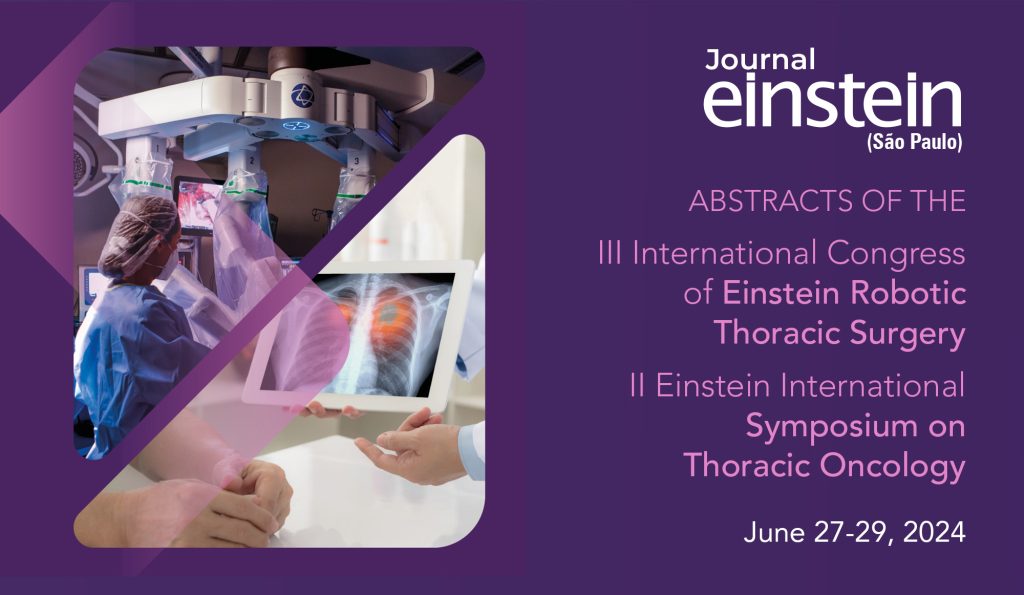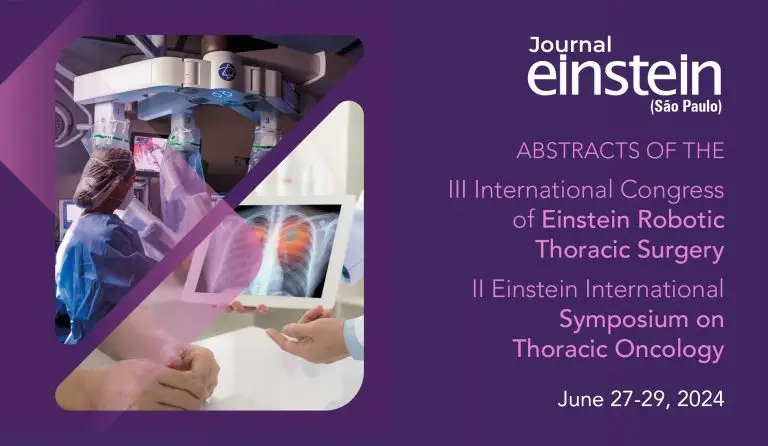einstein (São Paulo). 25/Jun/2024;22(Suppl 1):STO010.
Comprehensive analysis: efficacy of pembrolizumab as an initial therapy for PD-L1 negative NSCLC
DOI: 10.31744/einstein_journal/2024ABS_BTS_STO010
Category: Thoracic Oncology
Introduction:
Bronchogenic tumors, predominantly non-small cell type (NSCLC), are a global health concern, with adenocarcinomas, their most common subtype, being most often diagnosed at advanced stages, making it essential to develop effective therapeutic strategies, especially for patients with NSCLC who do not express the PD-L1 (Programmed Death-Ligand 1) protein. Two pivotal studies, Keynote-189() and Keynote-407,() presented their combined results in 2023, after a 5-year follow-up,() concluding that the combination of Pembrolizumab and chemotherapy demonstrated substantial improvements in overall survival (OS) compared to chemotherapy alone. These results represent a significant advancement in the therapies for PD-L1-negative NSCLC, offering a new therapeutic perspective for this group of patients without compromising treatment tolerability. This article analyzes and synthesizes the data from these studies, highlighting its importance and clinical potential of this combined approach in the management of NSCLC.
Objective:
To evaluate the potential of oncologic therapy with Pembrolizumab in patients with PD-L1-negative NSCLC.
Methods:
This is a descriptive study through the critical analysis of works that correlated the different perspectives of oncologic therapies for lung cancer, relating to PD-L1-negative NSCLC, written in the English language.
Results:
The two fundamental studies, KEYNOTE-189 and KEYNOTE-407 divulged in 2023 their combined results for PD-L1 negative patients. In the Gadgeel et al. study, of 442 patients with a mean follow-up of 60.7 months, the 255 patients who received pembrolizumab plus chemotherapy achieved a survival rate of 12.5%, compared to 9.3% among 187 patients undergoing chemotherapy alone. Keynote-189 results were similar, being observed in the study, which included 616 patients with non-squamous NSCLC, over 5 years of follow-up, utilizing pembrolizumab plus chemotherapy, resulting in a median OS increase of 11% compared to the Control Group. Additionally, the Keynote-407 study, which included 559 patients with a mean follow-up time of 56.9 months for pembrolizumab plus pemetrexed- platinum, indicated a marked improvement in progression- free survival (PFS), with rates of 10.8% versus 3.5% for the placebo, and survival rates for the first group was also longer, with a 18.4% rate compared to the placebo group 9.7% ().
Conclusion:
According to the analysis of the presented results, it is evident that Pembrolizumab represents a promising and effective therapy for patients with PD-L1 negative NSCLC. The Keynote-189 and Keynote-407 studies consistently highlighted improvements in overall survivorship and progression-free survival with the use of Pembrolizumab plus chemotherapy, as opposed to chemotherapy alone. These outcomes offer a new therapeutic perspective for a group of patients who previously had limited treatment options, representing a significant advancement in the management of these patients, with real potential to positively impact clinical practice and improve outcomes for patients with PD-L1 negative NSCLC.
Keywords: Drug therapy; Lung neoplasms; Non-small-cell-lung; Immunotherapy; PD-L1 protein
505



